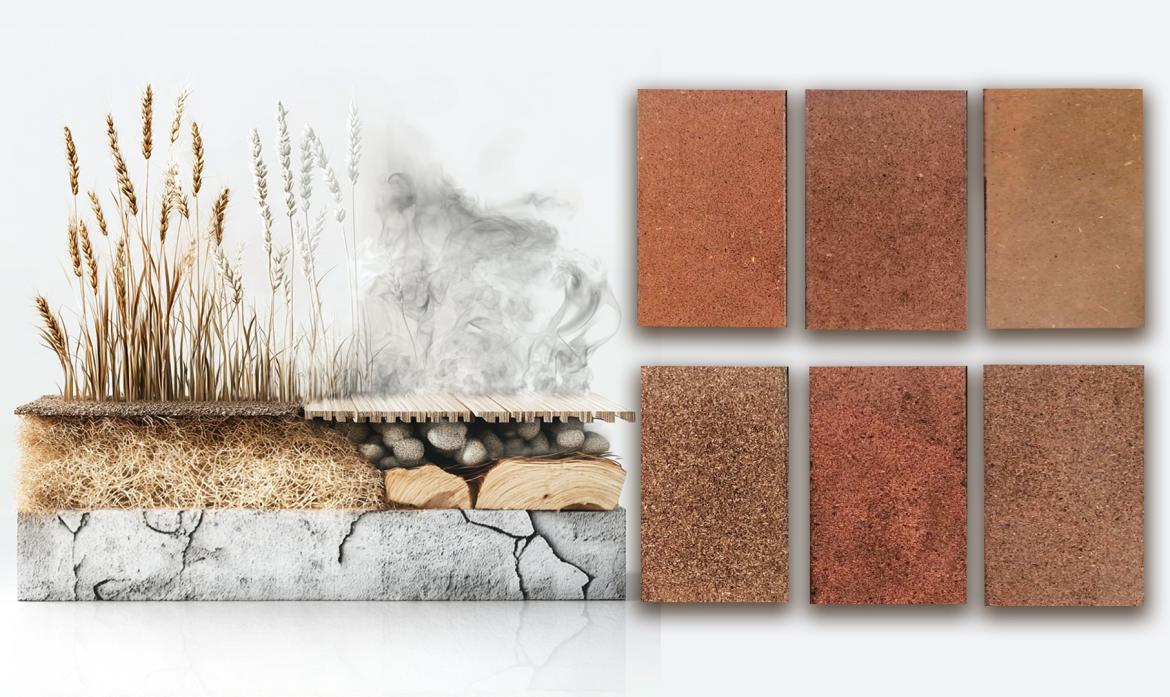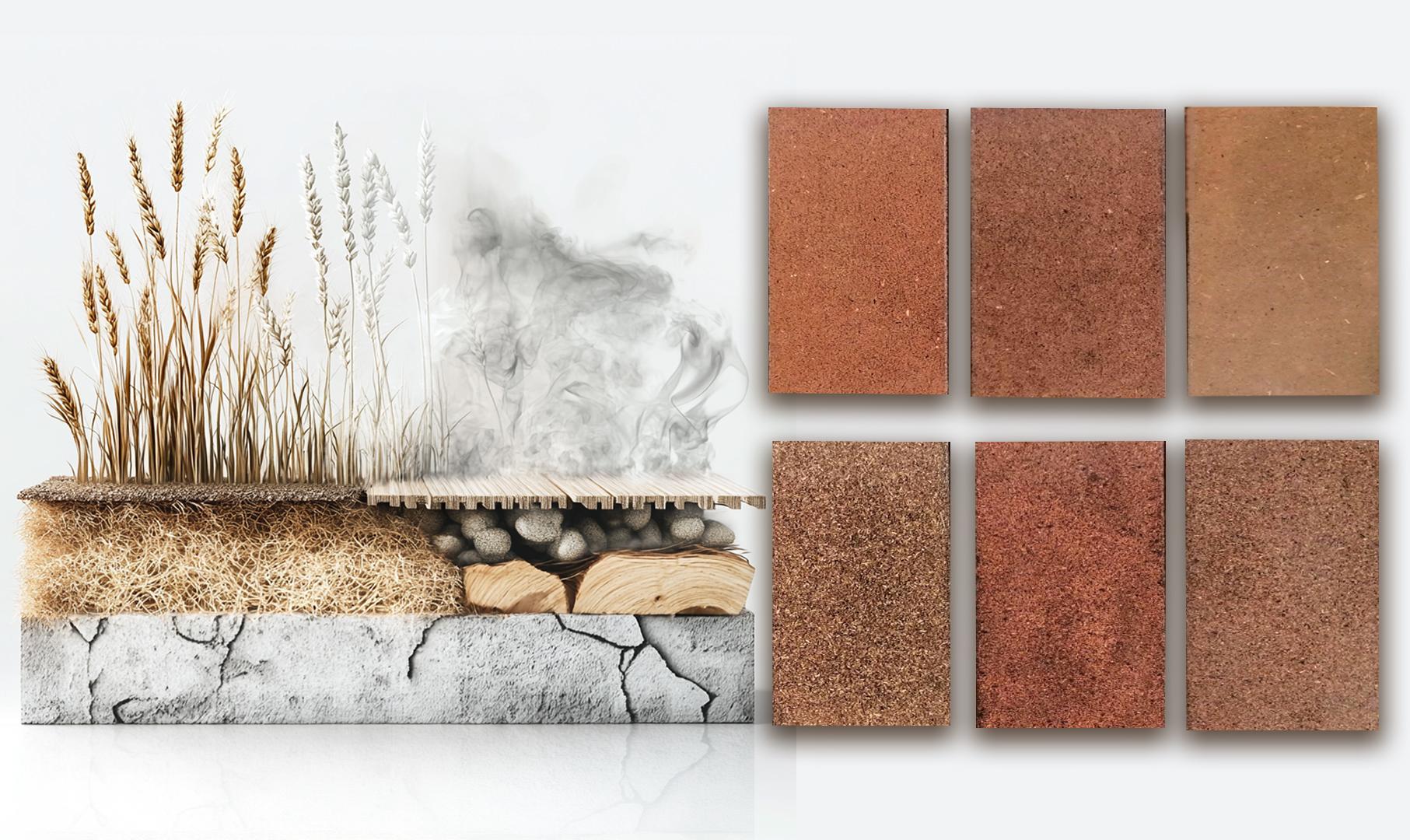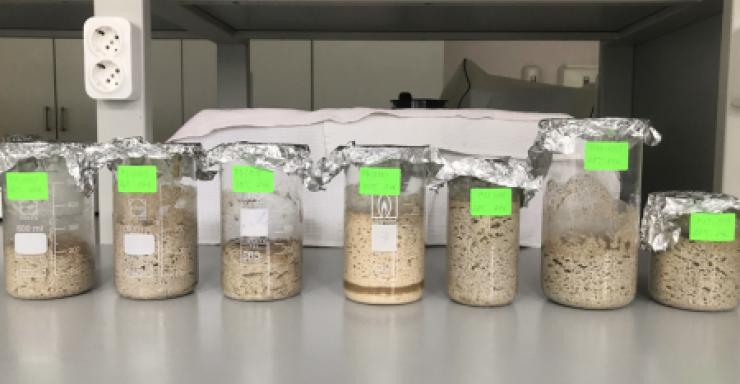40% – this is the share of energy consumption and CO2 emissions in Europe that comes from the construction industry. How can we reduce this impact on the climate? One solution is more environmentally friendly building materials, especially in the finishing of building facades.

The conceptual illustration on the left shows the transformation of biomass, highlighting a symbolic depiction of the steam explosion process and the main raw materials – wheat straw and wood fibers. On the right, you can see six real finishing panels developed under the leadership of Dr. sc. ing. Ramūnas Tupčiauskas, demonstrating the tangible results of this innovative research. These panels have been developed as an alternative to traditional cement materials, offering a more sustainable and environmentally friendly solution for modern construction.
In the search for sustainable solutions in this field, Latvian State Institute of Wood Chemistry is currently developing new facade cladding panels made from renewable biomass. The goal of the institute's project, "Innovative Biomass Panel Research for Application in Exterior Building Facades," is to create ventilated facade panels from local biomass resources, such as wheat straw and paper pulp. To produce moisture-resistant cladding panels without synthetic resins, researchers use the steam explosion process – a method where biomass is transformed into fiber mass with self-binding properties. In the second case, moisture-resistant suberin acids – a binder obtained from birch bark – are added to the biomass, with the technology belonging to the institute.
The result is high-density panels intended to replace the widely used cement fiber boards for building facade cladding. The difference is that energy-intensive cement is not used in the production of biomass panels, making their carbon footprint much smaller.
For example, wheat straw, which has largely been an agricultural waste until now, becomes a valuable raw material for a sustainable building material in this innovation. Throughout the development process, the new panels will be thoroughly tested and evaluated according to EU standards (including a full life cycle analysis) to ensure their durability and safe disposal.
In the future, office buildings, schools, or residential houses could be clad with panels sourced from the fields and forests of Latvia – a step towards a circular economy and sustainable architecture. Less pollution, less waste – this aligns with the European Green Deal and climate neutrality goals.
The research is being conducted under the leadership of Dr. sc. ing. Ramūnas Tupčiauskas, a scientist at the Institute. Ramūnas is the recipient of the 2024 "Golden Cone" award in the category "For Scientific Contribution to Industry Development." His selfless work and professionalism are driving research towards the development of innovative, sustainable materials with the potential to transform the future of construction.


